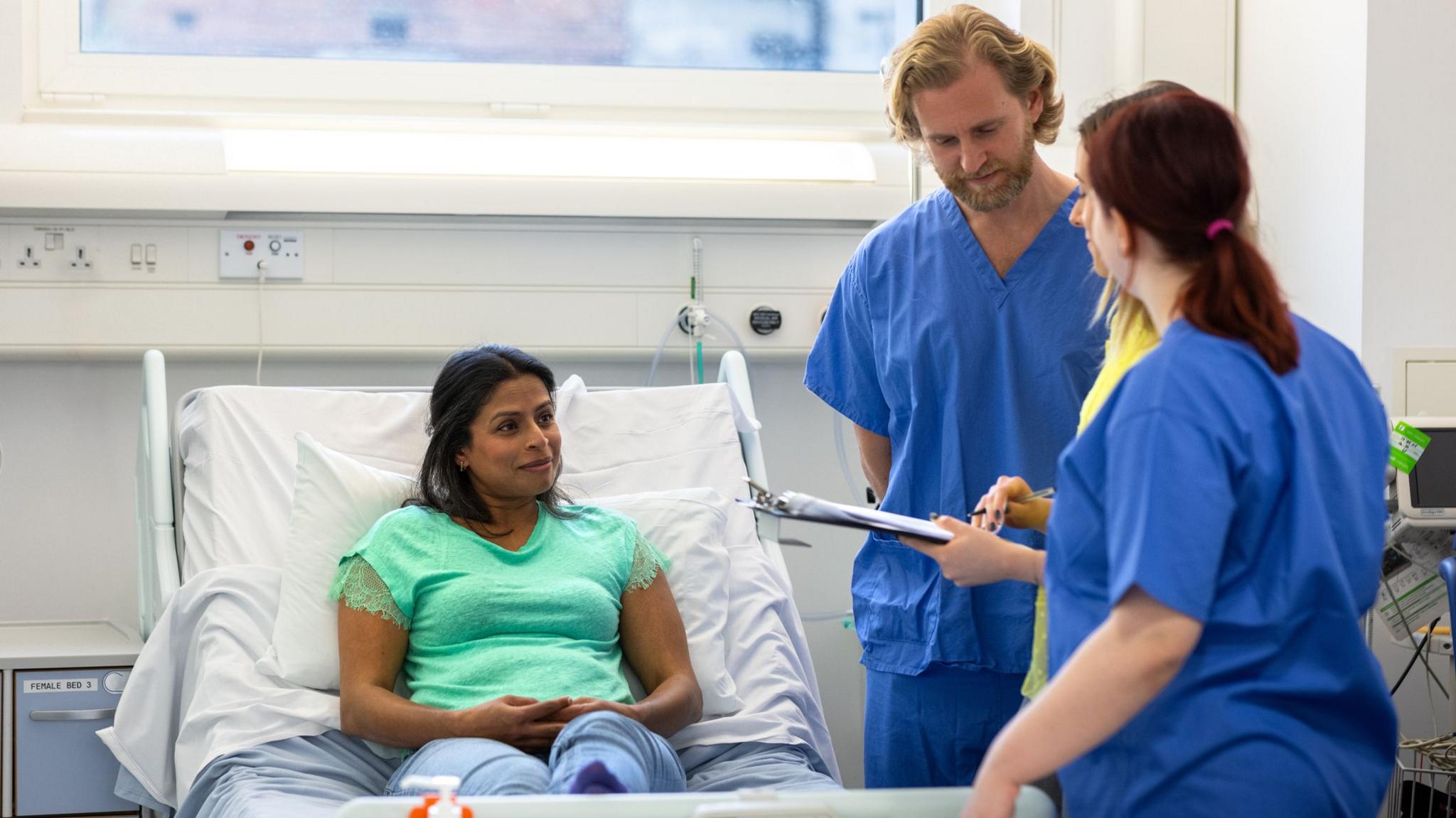NHS, schools, transport: Where Budget pledges are being spent

- Published
Rachel Reeves has announced billions of pounds of spending as part of the Budget.
Here BBC correspondents analyse how much money has been pledged in key areas and where the money will be spent.
Health: About 4% a year for NHS
The chancellor called it the biggest hike in funding for the NHS since 2010 - £22bn extra for the front line and another £3bn for equipment and buildings for the rest of this financial year and the following one. That may sound a lot. But the overall health budget for this year alone is in excess of £190bn.
The NHS accounts for the bulk of this. We don’t know quite how this money will be divided between this year and next. But it is likely to mean an increase of close to 4% a year after inflation.
That is basically in line with the historical average – and certainly is more than during the 2010s. But what impact it will have remains to be seen. A chunk will undoubtedly go on pay rises, including the 22% increase for junior doctors.
Winter is also just around the corner – and hospitals have been warning for months they are over-stretched. The government though hopes there will be enough left over to start making an impact on the hospital backlog.
It’s promised 40,000 extra appointments and operations a week. The problem the government faces is that extra money has not necessarily translated into extra treatments.
Over the past five years the budget has increased by nearly a fifth when you take into account inflation. But the number of patients starting treatment has gone up by just 3%.
Education: A financial sticking plaster
A large financial sticking plaster has just been applied to an unfolding crisis in England’s education system, in the form of £1bn additional funding for children with special educational needs and disabilities (SEND).
To put that in context, spending on SEND has risen by 58% in the last 10 years, to reach £10.7bn a year in England. Despite those recent cash increases, the National Audit Office - which looks at value for public money - says the system is broken and financially unsustainable without reform.
There is a looming crisis because councils are holding more than £4bn of deficits off their annual accounts, a deal that runs out in 2026. Families report longer waiting times amid efforts to cut spending. So today’s cash buys time to keep the system going without solving those longer term problems.
The £1bn for SEND comes out of the £2.3bn overall increase in core spending on schools, allowing the government to say it will rise in real terms per pupil. After a couple of years of crumbling school buildings hitting the headlines there is an increase to £6.7bn in the amount of capital spending allocated for maintenance, replacing school buildings and creating new nurseries places in primary schools.
Transport: Motorists clear winners
Increasing fuel duty is “the wrong choice for working people”, Rachel Reeves said today. She defied expectations that she would reverse a 5p cut introduced by the last Conservative government. As a result motorists are clear winners in this year’s budget.
She committed to invest £500m in the road network. “Potholes are a significant reminder of our failure to invest as a nation,” she said.
The chancellor also pledged £1.3bn to improve transport connections, including cash to extend the West Midlands Metro and funding for the new West Yorkshire tram in Leeds and Bradford.
She earmarked £650m for local transport investment to improve connections, mentioning areas such as Crewe and promised money to improve rail in the North. She said the government would deliver the TransPennine upgrade, which aims to fully electrify regional services by the end of the year.
We also had confirmation of the government’s plans to end funding for the £2 bus fare cap for most single journeys in England. Reeves announced £151m for a new £3 bus cap in England, running from 1 January to 31 December 2025.
The government also announced a 4.6% increase in the cost of regulated rail fares in England and a £5 hike for most railcards. The news was not announced in the Budget speech, but instead, it was published in the Treasury’s budget document.
Get in touch
How does the Budget affect you personally and what would you like us to explain?